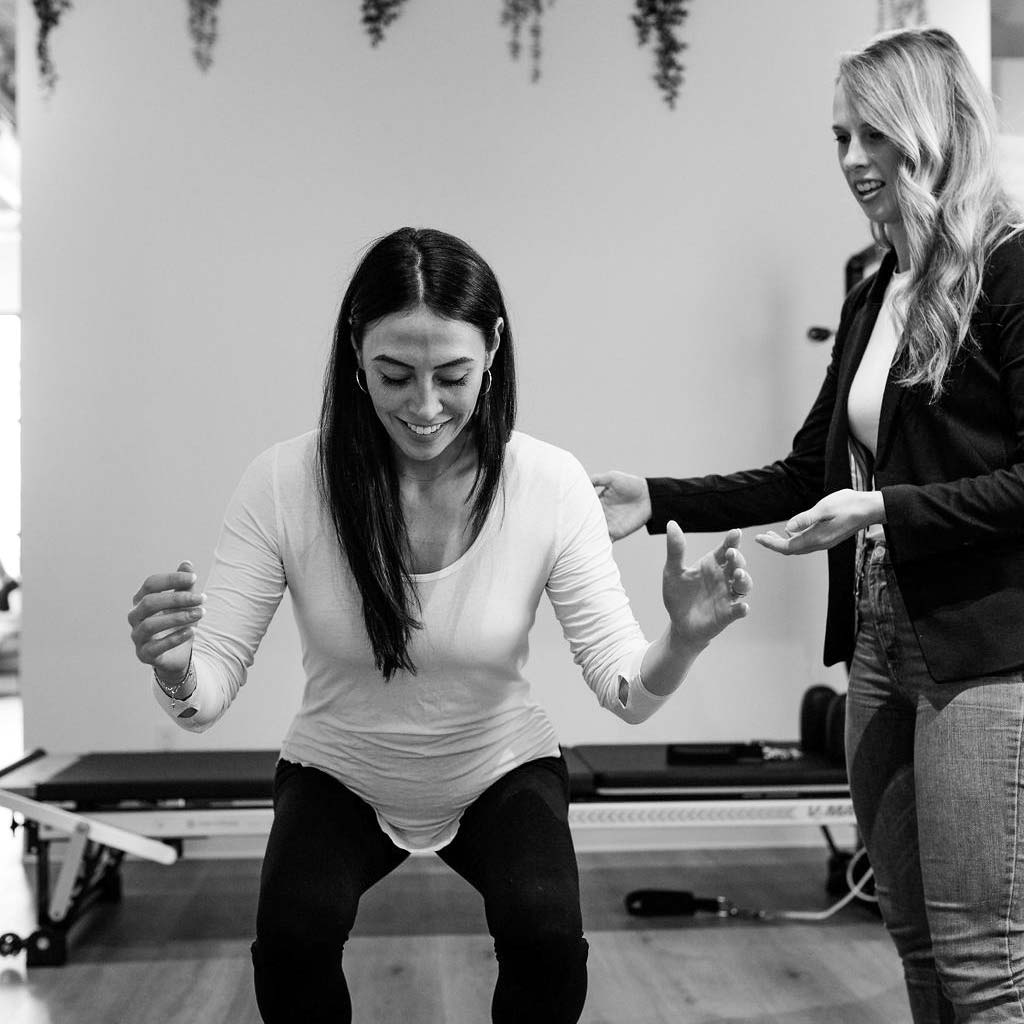
Registered kinesiology services
Guiding your movement journey
Kinesiology is the study of human movement and focuses on using exercise and movement to help individuals promote and optimize their health and well-being. Through movement and exercise, they manage, treat and rehabilitate:
- Various acute and persistent injuries
- Illnesses
- Workplace injuries
- Motor vehicle collisions
- And more
Kinesiologists are trained to treat clients of any age and all physical abilities.
At Bump Physio & Co, we offer personalized fitness, kinesiology, and exercise rehabilitation services. All of our kinesiologists are registered with the British Columbia Association of Kinesiologists. Our team combines strength, conditioning, clinical Pilates, and core exercises to help you move your body the way you want and in the way that feels best to you!
The team at Bump uses exercise and movement to get you back to doing the things you love every day. We can help you:
- Build up your strength, endurance, and cardiovascular conditioning to help you prepare for labour and delivery
- Resolve common pelvic floor symptoms such as leaking with coughing/ sneezing, pain with intercourse, pelvic floor heaviness, and pressure
- Achieve your individual exercise and movement goals whether that be training for a marathon, returning to Crossfit or carry your groceries (or toddler) pain-free and with ease
We are here to support YOU!
Private sessions
-
Pilates techniques focus on breath, core strengthening, balance, and flexibility. Using breath and movement-based exercises, we aim to help you gain a new awareness of your self, as well as build strength, coordination, control, and most importantly, improve your quality of movement. These 1-1 sessions are led by a registered kinesiologist or pilates instructor.
-
Interested in doing pilates with a friend? These 2-1 sessions are a great option for you to workout with your partner, bestie or get to know another client of the clinic at a lower cost than our 1-1 Kin led Pilates offerings.
-
Our personal training services are available to help you reach your fitness goals. These sessions are designed to push you outside of your comfort zone and challenge you. If you are looking to rehabilitate an injury, our exercise rehabilitation services are for you.
-
Are you looking for a low cost option to see one of our Kinesiologists? We’ve created open drop in gym times for you to be able to touch base with our kinesiologists, review your exercise plan, have them provide feedback on your form, body mechanics and generally provide support for your movement program. Please note, dop in times are not 1-1. Other clients may be working with the kinesiologist alongside you.
Kinesiology
| Service Duration | Service Cost |
|---|---|
| Initial Assessment (55 min) | $120 |
| Follow-up Session (40 min) | $95 |
| Kin led 1-1 Pilates Sessions (55 min) | $95* |
| Kin led 1-1 Pilates Sessions (30 min) | $60* |
| Kin led 2-1 Pilates Sessions (55 min) | $50 pp* |
| Kin led 2-1 Pilates Sessions (30 min) | $35 pp* |
| Kin led Personal Training Sessions (55 min) | $95* |
| Kin led Personal Training Sessions (30 min) | $60* |
| Drop in gym time | $25/visit |
*5% discount if you purchase a package of 5 sessions
*10% discount if you purchase a package of 10 or more sessions
